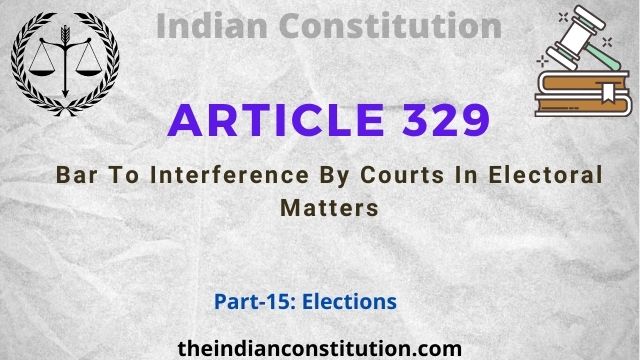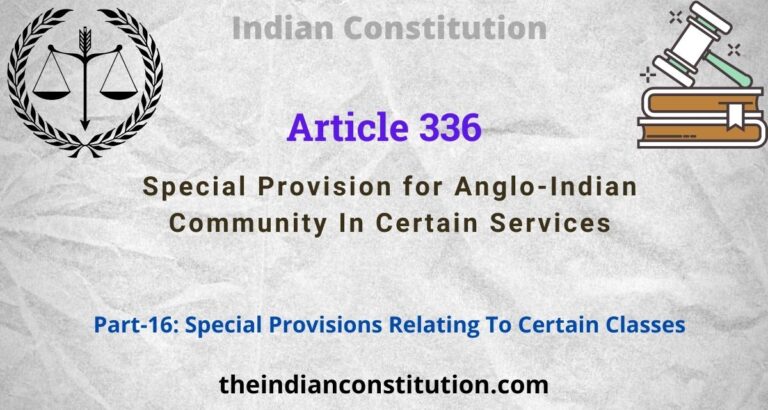Article 21: Right To Life And Personal Liberty of Indian Constitution
Article 21 is fundamental of all the fundamental right and most interpreted Article of the Constitution.
Article 21: Protection of life and personal liberty
No person shall be deprived of his life or personal liberty except according to procedure established by law.
-Text in Constitution
Explanation of Article 21
Article 21 is available to both citizens and non-citizens. This is not absolute article restriction apply by establish law.
Main three keyword are describe in article 21
- Life
- Personal Liberty
- Procedure Establish By Law
Current form of this article evolve case by case basic, so let we understand with the help of various cases.
1. Life
In many cases, supreme court derives or inferred many rights which declared as a part of Article 21. There are more than 30+ right and further counting.
- Right to live with human dignity.
- Right to reputation.
- Right to livelihood.
- Right to privacy.
- Right to shelter.
- Right to health.
- Right to free education up to 14 years of age.
- Right against bonded labour.
- Right to free legal aid.
- Right to speedy trial.
- Right against handcuffing.
- Right against delayed execution.
- Right against solitary confinement.
- Right to travel abroad.
- Right to fair trial.
- Right against inhuman treatment.
- Right against custodial harassment.
- Right to timely medical treatment in hospital
- Right not to be driven out of a state.
- Right of prisoners to have necessities of life.
- Right to emergency medical aid. government
- Right of appeal from a judgment of conviction
- Right of women to be treated with decency and dignity.
- Right against sexual harassment at workplace
- Right against rape
- Right against public hanging.
- Right to hearing.
- Right to information.
- Right to social security and protection of the family
- Right to electricity
- Right against bar fetters
- Right to appropriate life insurance policy
- Right to social and economic justice and empowerment
- Right to sleep
- Right to freedom from noise pollution
- Right to decent environment including pollution-free water and air and protection against hazardous industries.
- Right against Illegal Detention (have to Prove illegal)
Some rights which are Not part of article 21
- Right to work
- Right to Die(Suicide)
- Right to Anticipatory Bail, etc.
This all rights shows the features of the flexibility of the Indian constitution.
Generally, people thought that if they have the Right to do then they also have the right not to do. Mean I have the right to live than I have the right not lived(Right to die) also.
No, that is not true in Gian Kaur vs State of Panjab 1996 case Supreme court say that ‘In the Indian constitution no waiver allowed for the fundamental right’.
Means no one shall deny to take fundamental right, no person say that I don’t want right to life or other right.
Kharak Singh vs State of UP 1963 case the court held that the ‘right to life’ as embodied in Article 21 is not merely confined to animal existence or survival.
But if includes within its ambit the right to live with human dignity and all those aspects of life which go to make a man’s life meaningful, complete and worth living.
Right to Death/Suicide
In the Gyan Pal case, SC has settled the controversy by clearly establishing that there is no right to suicide and death. Thus section 309 of IPC, which criminalizes attempt to suicide doesn’t violate Article 21.
Euthanasia/Mercy killing
Aruna Shaunbag case, SC permitted passive euthanasia but not active euthanasia.
Active Euthanasia means ending the life of a person by giving him active means like lethal injections, drugs, etc.
Passive Euthanasia means taking out the life support systems. It is allowed by SC to be done under guarded circumstances only.
2. Personal Liberty
A.K.Gopalan vs State of Madras court held that only two conditions consider as a violation of personal liberty 1. Physical restrain(Body of Person) 2. In the case of cohesion.
This is a narrow interpretation. But, in the Menaka Gandhi case(1978), the supreme court overruled its judgment by taking a wider interpretation of Article 21.
In that court say that any law that have infringe personal liberty have to pass three procedure
- Reasonability,
- Fairness and
- Justiciable (Explain in due process of law)
And wider the protection against physical restraint to all Psychological restrain.
3. Procedure Establish By Law
The concept originated from the United Kingdom under this doctrine when a person is deprived of his life and liberty then the court will examine-
- If or not there is a law in existence which authorizes the executive to deprive of his life and liberty?
- The further court will examine whether the law was passed by a competent legislature or not?
- The further court will also check whether the law which has been used by the executive was following procedure or not?
If any action of executive not follow above process or condition then that action consider illegal.
The court however will not examine the fairness of law or the motive of law and thus can not be declared the law unconstitutional and void.
This doctrine is available only against arbitrary executive action and not from arbitrary legislative action.
The procedure established by law relies more on a good sense of legislature. Which suitable for UK legislation not for Indian. (Balance of Power issue)
Constitution Assembly Debate:
B.R.Ambedar wants to use the phrase ‘Due process of law’ in Article 21 but Sir Alldi Krishnaswamy Aiyar put to argue that ‘In future, we want to make social legislation then procedure establish by law will more suitable’.
Maneka Gandhi Case (1978)
Supreme Court accepted that due process is inherent in the procedure established by law. SC in this case applied the United States American principle of “due process of law” for the first time. It applied the following arguments:
- Article 19 and 21 can’t be understood as watertight compartments and the same criteria of reasonableness must be applied for Article 21 too.
- Merely following the procedure established by law is not enough. The courts have the right to review and question the reasonableness of the law itself.
- Restrictions must be reasonable, just and fair and shouldn’t be arbitrary.
In India, traditionally we followed the principle of “Procedure Established by Law”. However, since the 1978 Menaka Gandhi case we have followed “Due Process of Law” also.
Read Due Process of Law
Emergency And Article 21
Before 44th Amendment:
A.D.M Jabalpur vs Shivkant Shukla 1976 SC held that article 21 can be suspended under article 359 in an emergency situation.
After 44th Amendment:
Due to violation of human rights in 1975-77 emergency, Amendment made in Article 359 and make provision that article 21 and article 22 both can not be suspended in an emergency.


